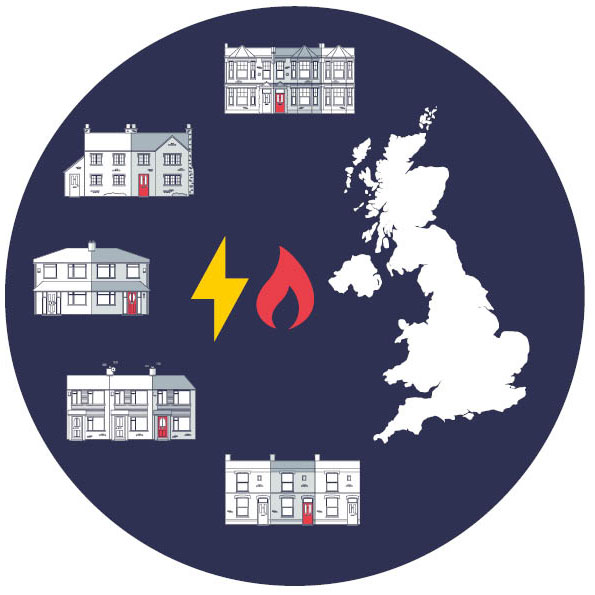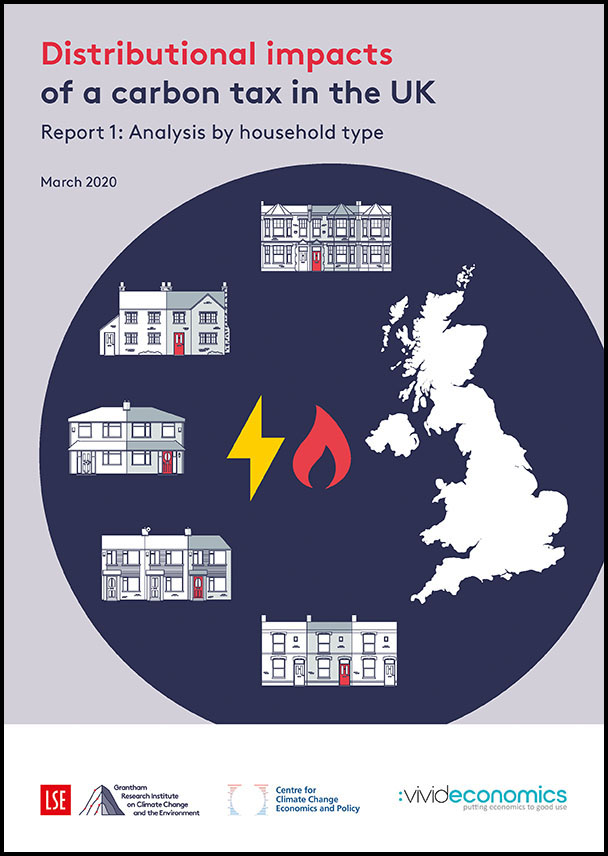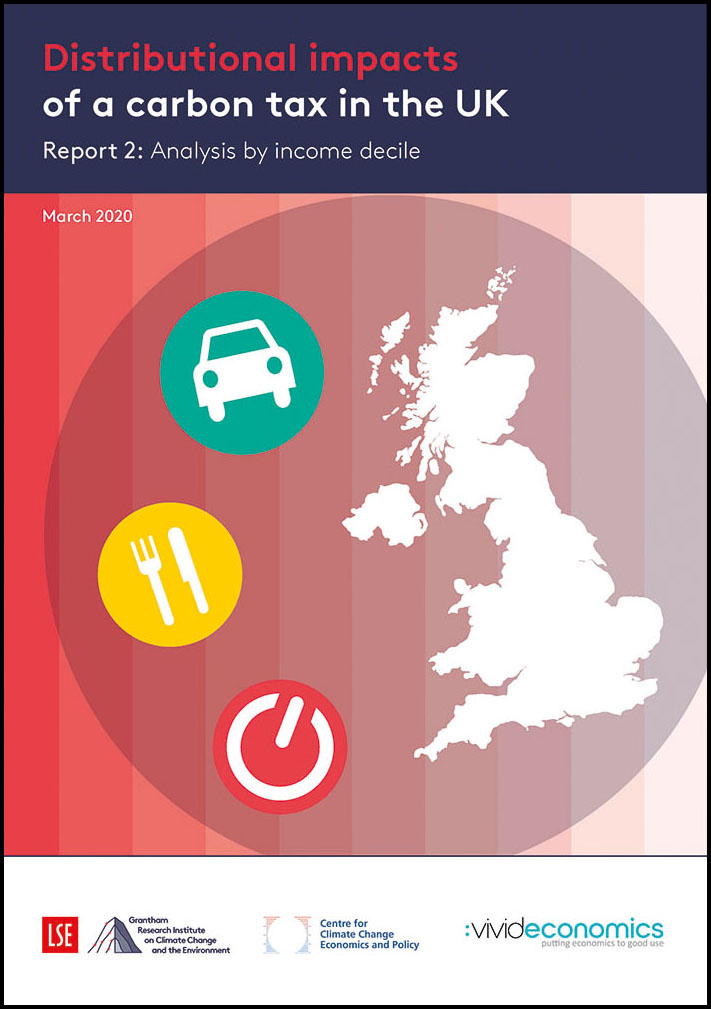Distributional impacts of a carbon tax in the UK

Downloads


Now is an opportune time for the UK to reconsider how it prices carbon, in a way that ensures distributional fairness. Carbon pricing encourages emissions abatement where it is cheapest and sends a clear price signal that the polluter must pay. However, carbon pricing is often hard to implement as it is more transparent than other policies about its economic winners and losers. Therefore in its design of a carbon tax the UK must carefully consider how costs and benefits are distributed across society, to achieve both immediate political feasibility and the durability of carbon policy over time. With the Government’s new net-zero target there is an important opportunity to scrutinise conventional fiscal thinking – especially that all revenue is treated as general tax – to ensure distributional fairness.
This study explores the distributional impacts of a net-zero-consistent carbon price across different household types and income deciles in the UK, and examines which combination of interventions may reduce carbon consumption and still be progressive.
Report 1 tests whether there is a carbon tax revenue recycling scheme that leaves fuel-poor households better off while driving the transition to net-zero emissions by 2050. It models the effect of a carbon tax of £50 per tonne of carbon dioxide in 2020, rising to £75 in 2030, on five different types of household. Report 2 models the impact of the carbon tax and different revenue recycling options on households in different income deciles.
The accompanying policy brief summarises the main findings and messages of both reports.
Main messages
- Carbon pricing is essential for effective climate action. It is a powerful fiscal and environmental tool that encourages emissions abatement where it is cheapest and sends a clear price signal that the polluter must pay.
- The UK’s transition to net-zero greenhouse gas emissions must be distributionally fair, and policies must be designed to mitigate undesirable distributional impacts.
- The current economic framework for decarbonisation in the UK is inefficient and uneven. A broader-based carbon tax consistent with net-zero greenhouse gas emissions would be desirable.
- Without mitigation measures, a carbon tax on energy fuels is regressive, hitting low-income households disproportionately. In the transport sector a carbon tax is largely progressive as the share of income spent on transport increases with income.
- Understanding the geographic spread of carbon tax impacts is vitally important to prevent adverse impacts. For example, the impact of a carbon tax in Scotland will be particularly high because Scotland is colder and more rural than other parts of the UK, and therefore more heating and transport are used.
- Judicious use of carbon tax revenues – where economic ‘losers’ are compensated – can help ensure distributional fairness and protection for fuel-poor households.
- It is therefore possible to design a recycling scheme that leaves fuel-poor and low-income households better off while driving the transition to net-zero emissions in the UK by 2050.
- Revenue recycling schemes that each use a similar amount of revenue can have vastly different impacts depending on how they are designed. With a similar amount of revenue the redistribution policy can either be somewhat or extremely progressive.
- A pricing scheme that augments carbon prices with border carbon adjustment has a large impact on household bills across all income groups. However, of all the policy options it also generates the largest amount of revenue, which could be further used to mitigate the impact.
- A pricing scheme that uses carbon prices differentiated by sector has the least impact on bills across all income groups.
High-level recommendations
- The carbon tax level needs to be raised. A carbon tax consistent with net-zero emissions by 2050 would start at £50 per tonne of carbon dioxide.
- Conventional fiscal thinking that sees all revenue treated as general tax must change to ensure that the impacts of carbon pricing are distributed fairly and that the policy becomes more politically and socially acceptable. Carbon tax revenues should be explicitly used to correct undesirable distributional outcomes.
- Interventions focused on improving energy efficiency can make a substantial difference to the distributional impact of carbon pricing. For example, we show that using 33 per cent of revenues for energy efficiency can ensure fuel-poor households are not adversely affected by carbon taxation; and, depending on the design of the revenue recycling, distributing between 19 and 70 per cent of revenues to households via a uniform or targeted cash transfer can ensure that carbon tax policy is progressive.
- Compensatory policies should at least in part pre-empt and cover any increases in energy bills arising from the carbon tax. This is necessary to avoid any transitionary periods where high carbon taxes increase energy bills before energy efficiency improvements are implemented.
- Using income and consumption differentials is a useful way to identify and understand the implications of carbon pricing policy. However, it is important to identify specific political entities within them, where opposition to carbon taxes may be particularly strong.
- When assessing the impact of carbon taxation, government must assess both ‘vertical’ ‘horizontal’ effects that is, the differing effect of the tax on high- and low-income households, and the differing effects on households with similar incomes but different consumption patterns. Horizontal effects have hitherto been largely neglected. Assessing these effects will ensure that carbon pricing can be designed to prevent regressive outcomes and a rise in fuel poverty where there is within-income group variation in energy expenditures.
These reports have been written by authors from the Grantham Research Institute on Climate Change and the Environment (LSE), Vivid Economics and the University of Leeds to inform the Zero Carbon Commission and the Zero Carbon campaign but the views expressed are those of the authors and independent of the funding institutions.

